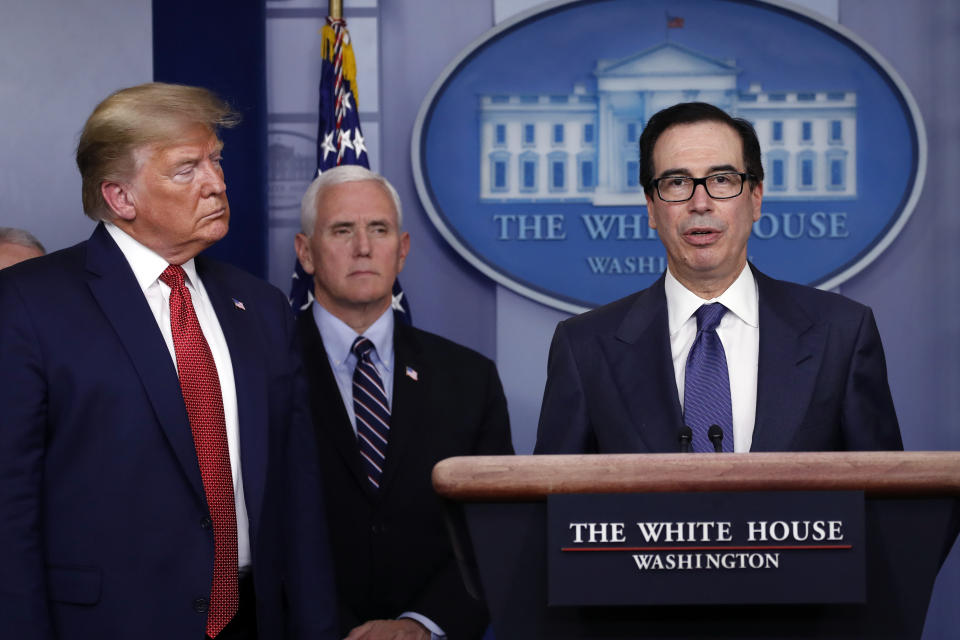Coronavirus crisis has exposed ‘raw underbelly’ issues in economy: expert
The Senate passed a record-breaking economic aid package worth around $2 trillion on Wednesday night. Just hours later, new U.S. jobless claims for the week ending March 21 shattered all records.
Shai Akabas, the director of economic policy at the Bipartisan Policy Center, joined Yahoo Finance Thursday to link the two historic events together a bit.
The bill was “a necessary step but almost certainly not a sufficient one over the long run,” he said, adding that it was important to “think about some of the raw underbelly problems that this crisis has exposed.”
The one oft-cited statistic is that 40% of Americans would struggle to come up with $400 to pay for an unexpected bill. That data comes from the Federal Reserve’s 2018 Survey of Household Economics and Decision Making.
There are plenty more examples (all from before the current crisis) that help explain the economic pain being felt, and evidenced in the jobless claim numbers.
According to Bankrate, nearly three in 10 Americans have no emergency savings whatsoever. Another report found that two-thirds of working millennials have nothing saved for retirement. Americans also hold more than $1.51 trillion in outstanding federal student loans, according to the Department of Education.
A “remarkable share of the households in the economy operate on a paycheck-to-paycheck basis,” Akabas said. “With that many Americans living a financially unstable life even in good times, there’s no way that they can have the backstop to survive the type of economic crisis that we are going to be going through in the next several weeks and months.”

Akabas appeared as part of Yahoo Finance’s ongoing partnership with the Funding our Future campaign, a group of organizations advocating for increased retirement security for Americans.
He said more will need to be done in Washington considering “we basically hit the off switch on much of the economy.”
“We need to look in the longer term at policies like helping people build up emergency savings, like removing barriers to work so we can get more people back in the workplace, like lowering the cost of college, and reducing the burden of student loans,” he said.
Sen. Chuck Grassley (R-IA) told Yahoo Finance on Wednesday he wants to wait and see before jumping into a phase 4 bill. “I’ll bet you in 6 weeks, we’ll be able to answer that,” he said. “If we are in the same place three or four months from now as where we are today, we are going to have to do more.”
Akabas agreed, at least in part: We “can't digest yet exactly what's going to happen over the coming weeks and months.”
Ben Werschkul is a producer for Yahoo Finance in Washington, DC.
Read more:
Here's what’s in the $2 trillion coronavirus stimulus deal for businesses
Public health expert: Now is the time to ‘double down on social distancing’
There are new racial wealth gap numbers, and they're not pretty
Read the latest financial and business news from Yahoo Finance
Follow Yahoo Finance on Twitter, Facebook, Instagram, Flipboard, LinkedIn, YouTube, and reddit.
